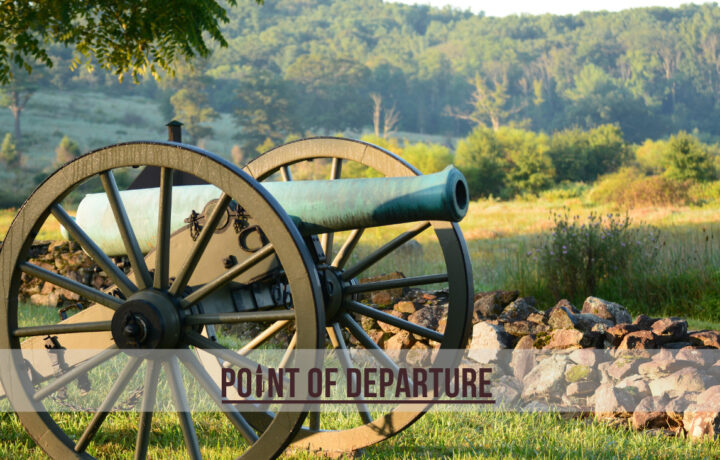“It is only those who have neither fired a shot, nor heard the shrieks and groans of the wounded who cry aloud for blood, more vengeance, more desolation. War is hell.” – William Tecumseh Sherman
During the ramp-up for the publication of the leadership anthology, To Boldly Go, I was recording a podcast with the New York Times bestselling author, Max Brooks. In the course of recording, the subject of war stories came up – specifically, the kinds of war stories people tell and why they tell them. After we finished recording, I remarked that most combat veterans aren’t especially talkative after seeing the hell of war, so the stories they do tell tend to be almost metaphorical.
This led Max to tell a short story about one of the frequent guests in his childhood home, the late comedian Don Rickles. Rickles, who served in the Pacific during World War II on the torpedo boat tender, USS Cyrene, saw action in New Guinea and Leyte before being honorably discharged in 1946. His stories were ones that would be all too familiar to veterans today. Rather than regale listeners with the harrowing tales of combat duty on the high seas, Rickles would instead share nuggets of inane wisdom, such as how someone relieves themselves under fire. Which, if you haven’t experienced it firsthand, is an unwritten chapter in the art of war.
Even when you’re squatted over the edge of a PT boat, war is hell.
The Immutable Nature of War
The nature of war is violent and unforgiving. As long as humans have walked the earth, conflict has been a given part of life. Fleet Admiral Ernest King, who fought in the Spanish-American War while still a midshipman at Annapolis, noted in his 1952 memoir, Fleet Admiral King: A Naval Record, “War has changed little in principle from the beginning of recorded history.” Modern warfare was “only an evolution from the time when men fought with clubs and stones.”
War has a fundamental enduring nature, what Clausewitz defined as the class of actively opposed will comprised of violence, chance, and rational thought. While the character of war – how war manifests under a given set of circumstances – evolves rapidly, driven by advances in technology, shifts in the global order, and social dynamics, war’s character remains essentially immutable. Its nature is a constant in a human equation as old as humanity itself.
So, when we speak about war, we tend to do so metaphorically, almost in the abstract. It’s incredibly difficult to convey the darkness of war to someone who hasn’t seen it themselves, to describe the raw emotion that courses through your veins in times of intense stress. We speak in tones and with terms that others will understand.
1. “The story of the human race is war.” — Sir Winston Churchill
Humanity has long existed in a perpetual state of conflict, interrupted by brief periods of peace. Understanding that basic truth helps put history in perspective.
2. “War is thus an act of force to compel our enemy to do our will.” — Major-General Carl von Clausewitz
This is a fundamental truth to every conflict. Winning and losing ultimately comes down to a matter of will. You can’t claim victory as long as your opponent retains the will to fight on.
3. “War is the last of all things to go according to plan.” — Thucydides
Nearly 2500 years ago, the Athenian historian and general recognized Murphy’s law: anything that can go wrong, will go wrong, and at the worst possible time. You pierce the fog of war by building flexibility into your plans.
4. “War is primarily sheer boredom punctuated by moments of stark terror.” — Colonel Harry Summers
Few truer statements about the nature of war have ever been uttered. War is like a long PowerPoint briefing that hides the money slide until the very end.
5. “War is fear cloaked in courage.” — General William Westmoreland
The interaction between fear and courage is as old as war itself. As Nelson Mandela once remarked, “Courage was not the absence of fear, but the triumph over it.”
The timelessness of war
War is simultaneously simple and complex, with innumerable facets, but its very nature remains unchanged from the dawn of human conflict. Alexander the Great could walk a Ukrainian battlefield today and recognize it for what it is: the domain of unfettered vehemence driven, as Clausewitz noted, by primordial violence, hatred, and enmity. “War,” offered General H. Norman Schwarzkopf, “is a profane thing.”




